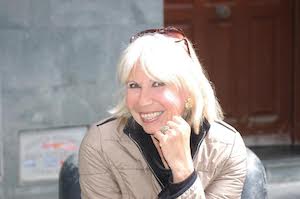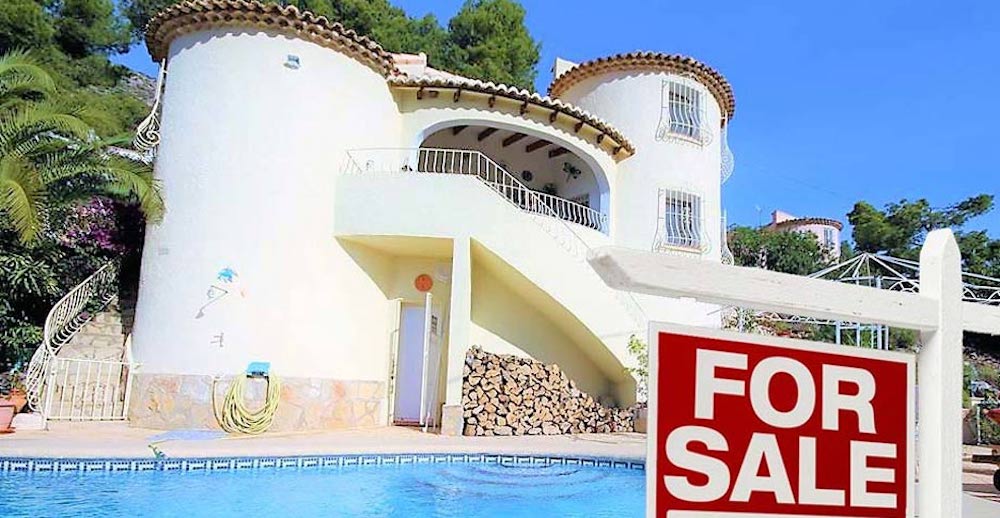(Editor’s note: Terry Boyd also contributed to this post on British expats considering leaving Spain.)
British expats in Spain, especially the old age pensioners many of whom have had holiday or retirement homes for many years, are taking flight. For once, the culprit is not the pandemic but Brexit and the increasingly strict rules Spain is imposing on British nationals.
Mariano Martinez, estate agent at CasasTorrevieja told me:
It’s a great shame and a loss for Spain. Over the past two years, we have seen an 80-percent increase of British nationals who come to our office and want to sell their properties. I feel sorry for them because you can see how disappointed they are about what’s happening in our country. For many their dream of retirement in the sun has been shattered. Many of the buyers are Russians, Spaniards who are ooking for a bargain or Moroccans who are residents in France or Belgium.
British nationals can now stay in Spain without a visa for 90 days. However, seniors love to spend up to six months in sunny Spain, escaping the cold winter months in their home country. This is no longer possible from the beginning of next year. Spain has introduced the need for a ETIAS visa waiver for just the 90 days. The waiver is valid for three years.
But that’s not all that prompts so many British expats to sell up.
First there was the need to decide if they would apply for a residence permit and if so, which one. Many went for the so called non-lucrative visa, which has of course tax implications.
As Mike, a 73-old pensioner from Birmingham put it:
Frankly, it’s all too confusing for my wife Linda and myself. We certainly don’t want to break any laws but now we see no other way than to put up our small holiday apartment in Torrevieja for sale. We have been coming here for years, driving down in our car and staying for six or seven months at a time. Spanish authorities have become very strict checking on UK-registered cars. You need to have a clearly visible (EU) sticker. No great deal but then come more questions. Like the validity of a UK driving license. I can’t go through the process of obtaining a Spanish driving license, certainly not if we can’t stay any more than 90 days anyway.
As he and Linda get older, they are also concerned about health insurance coverage, Mike said.
The public health insurance does not cover them and getting private health insurance at their age is very difficult because of the age limits many insurance companies have and if you find can find one, it’s very expensive, he added.
After much consideration, Mike and his wife are now throwing in the towel: “We will probably have to sell at a loss, but we are lucky insofar as we will move into a granny flat in our son’s house and so don’t have, like many other Brits in our position, to face the problem to find accommodation we can afford in the UK.”
As for holidays in the sun, they have their eyes on Turkey.
Mike is just one of those who have decided to leave. That said, that British expats are “leaving in droves” as this post suggests is certainly an exaggeration. No current figures are available as to how many of the estimated between 800,000 and 1 million British property owners in Spain will stay and either become full residents or wait what is about to happen.
We reached out to Marbella-based expat real estate agent Sean Woolley at Cloud Nine Spain, asking if he can confirm that more Brits are leaving than arriving.
“Here on the Costa del Sol, and especially in the mid-upper end of the market in which we are working, we haven’t seen any noticeable difference in volume of new sales instructions from UK-based owners,” Sean said. “If anything, now that many of these owners have been able to sample their second homes in the sun again since the easing of travel restrictions, they have fallen back in love with the Mediterranean lifestyle.”
Consequently, for many, any thoughts of selling up “have at least been put on hold, and in most cases dismissed altogether,” he added.
Sean said what might happen post-Brexit is a two-tiered real estate market:
• Those a the high end of the spectrum (self-employed or senior corporate executives) will have greater freedom base themselves for larger parts of the year from their Spanish home.
• Those at the mass end of the market who can’t afford or justify the extra time abroad might have think aboiut selling up, especially if they can’t trade up, which would enable them to apply for a non-lucrative or Golden Visa, allowing them to stay for longer than 90 days.
See more about Spanish real estate here.

About the author:
Inka Piegsa-Quischotte is an international attorney-turned-travel-and-lifestyle writer based in Spain. She has contributed to BBC/Travel, several in-flight magazines, TripSavvy (Spain) and TravelAwaits, among many other publications. After several years in Turkey, she now lives on Spain’s Costa Blanca.
Read more about Spain in our Dispatches archive here.
Inka Piegsa-Quischotte is an international attorney-turned-travel and lifestyle writer based in Spain. She has contributed to BBC/Travel, several in-flight magazines, TripSavvy (Spain) and TravelAwaits among many other publications.














